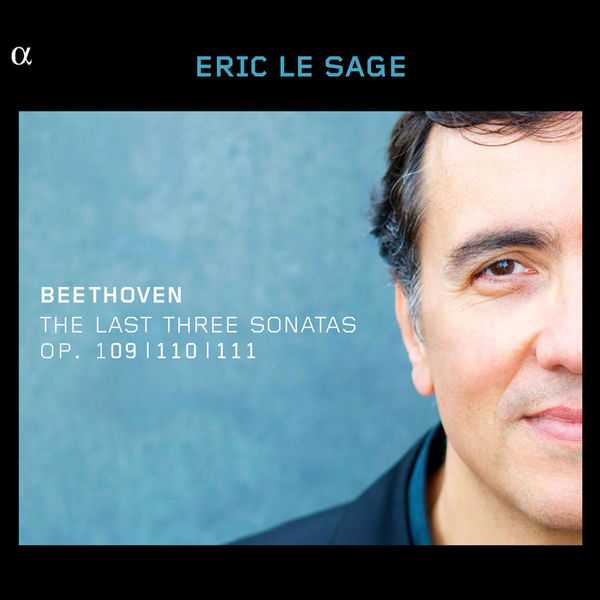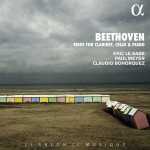

Composer: Ludwig van Beethoven
Performer: Eric Le Sage
Format: FLAC (tracks)
Label: Alpha
Catalogue: ALPHA607
Release: 2014
Size: 943 MB
Recovery: +3%
Scan: yes
Piano Sonata No. 30 in E major, Op. 109
01. I. Vivace, ma non troppo – Adagio espressivo
02. II. Prestissimo
03. III. Gesangvoll, mitt innigster Empfindung (Andante molto cantabile ed espressivo)
Piano Sonata No. 31 in A-flat major, Op. 110
04. I. Moderato cantabile molto espressivo
05. II. Allegro molto
06. III. Adagio ma non troppo – Fuga (Allegro ma non troppo)
Piano Sonata No. 32 in C minor, Op. 111
07. I. Maestoso – Allegro con brio ed appassionato
08. II. Arietta (Adagio molto semplice cantabile)
Better known for his recordings of the music of Robert Schumann and Gabriel Fauré, pianist Eric le Sage ventures into less accustomed repertoire with this Alpha disc of the last three piano sonatas of Ludwig van Beethoven. These pieces, like others among Beethoven’s late masterworks, have an ineffable aura of sanctity about them, and performers approach them with a sense of awe, as well as a solid backlist of recordings that lead up to them. Le Sage doesn’t have a discography of Beethoven sonatas, or even much Beethoven in his catalog at all, so his offering of the Sonata No. 30 in E major, Op. 109, the Sonata No. 31 in A flat major, Op. 110, and the Sonata No. 32 in C minor, Op. 111, may come as a surprise, or even an affront to some sensibilities. Yet he plays with the transparent touch and calm demeanor of many a master, and even though he isn’t likely to be credited with a major achievement until he records the rest of the sonatas, these performances are equal in technique, physical prowess, and emotional power to many other fine renditions. The sense of transcendence that unifies these three sonatas is evident in le Sage’s controlled interpretations, and he lends the music a clarity that feels a little rarefied and otherworldly, especially in the closing variations of Op. 111. On the strength of these exceptional performances, one hopes le Sage has a complete Beethoven cycle in store and that Alpha will release it soon.
‘Of Beethoven and his worlds in music, some will remember more the herald of pure music or of programme music, the Dionysian bearer of joy, or the man suffering from suicidal impulses, the builder or the destroyer. In any event, the creator stopped writing piano sonatas in 1822, the year of E.T.A. Hoffmann’s death. All the transgressions that are propounded by Beethoven’s Promethean output would be unable to conceal his faithfulness to the ideals of Aufklärung, his classic desire to lead, beyond the asperities, to a resolution and, beyond darkness, to light.’ Brigitte François Sappey
Eric Le Sage approaches this cycle with the sensitive vision of a great interpreter, henceforth renowned for his complete Schumann and Fauré recordings.



